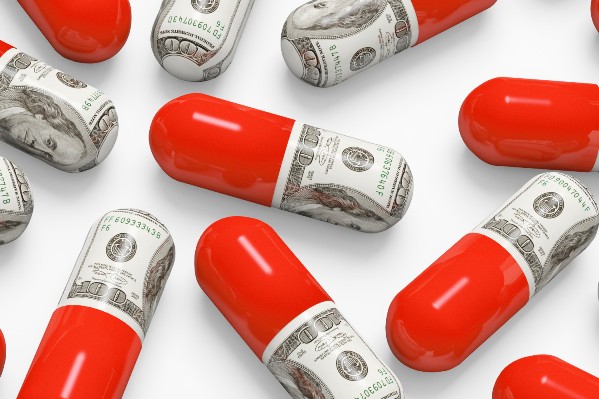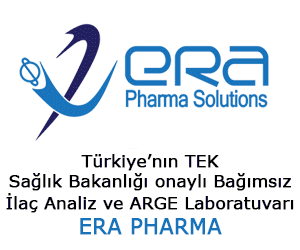Congress has found little to agree on when it comes to health care, but lawmakers from both parties appear to be warming up to ideas for reining in drug prices.
While soaring prescription costs have drawn fire from across the political spectrum, action has been scant. There are signs however that a consensus is forming on Capitol Hill on how to curtail tactics that shield blockbuster medicines from competition.
Among industry practices lawmakers are taking a critical look at are paying competitors to keep new generics on the sidelines and making minor tweaks to drugs to extend their patent life. Safety programs that keep rivals from accessing a medicine, effectively blocking generic versions by making drugs harder to copy, are also drawing scrutiny.
Legislators on both sides of the aisle have said in recent weeks that the government could use its power as a major buyer of drugs through Medicare, Medicaid and other programs to thwart such behavior.
“There is a possibility we could get to bipartisan agreement on some of this stuff, particularly if they’re getting government money, I think there could be some more rules on people that are consuming a lot of government money,” Senator Rand Paul, a Kentucky Republican, said on Tuesday at the Senate health committee’s third hearing this year on drug prices.
Legislative Possibilities
Senator Susan Collins, a Maine Republican, asked at Tuesday’s hearing whether it would be a good idea to ban certain actions by companies participating in Medicare and Medicaid. She was particularly interested in gag orders drug-benefit managers use to prevent pharmacists from telling patients when using insurance is more costly than paying out of pocket.
Paul and Collins mark ideological poles within their party. Collins is a centrist, while Paul is more conservative, describing himself at the hearing as someone “who believes in an open and free market.”
“Senator Paul is very interested in pursuing this topic and we will explore legislative possibilities over the next few weeks,” Sergio Gor, a spokesman for the senator, said in an email after the hearing.
Representative Peter Welch, a Democrat from Vermont and one of the leaders on drug-pricing investigations in the House, said barring companies that want to do business with Medicare and Medicaid from gaming prices and patents is “a good idea.”
Welch said in an interview after a House hearing on pricing Wednesday that pharmaceutical companies get to sell their products free of generic competition for a time to acknowledge the effort and expense of research.
“That ought to be enough,” he said. “No other companies producing products get that kind of market monopoly by law.”
Generic Gap
Stephen Ubl, chief executive officer of the Pharmaceutical Research and Manufacturers of America, downplayed the significance of high costs for brand-name medicines in an interview, noting that 90 percent of prescriptions in the U.S. are filled using generic drugs.
When asked about tactics drugmakers use to game the system, Ubl said “I don’t think it’s in the top 100 problems plaguing the health-care system,” but later apologized for being flip and added, “The system is fundamentally sound and is leading to greater competition.”
“This issue is not as significant as it is being made out to be politically,” said Ubl.
Though generics account for a greater share of prescriptions, government health programs are seeing the amount spent on specialty medications climb more quickly, according to the Department of Health and Human Services.
Evergreen Challenge
While Congress can curb gag orders and deals that pay generic manufacturers to stay off the market by restricting business with Medicare and Medicaid, curbing the use of minor changes to extend a drug’s patent, known as evergreening, may require changes to patent law.
Mylan NV’s EpiPen allergy treatment and AbbVie Inc.’s $16 billion Humira for rheumatoid arthritis are often cited as examples of expensive drugs that don’t have generic competition in part because their makers were able to build barriers to competition with patents linked to small changes to the drugs.
Alex Azar, President Donald Trump’s nominee to lead the Department of Health and Human Services and a former Eli Lilly & Co. executive, toldsenators last month he has “always been an opponent of abuse and gaming of the patent systems by drug companies” and would make recommendations in six months on how to help end such practices.
Price Transparency
Lawmakers have also indicated that transparency around how prices are set is key. One area that needs more light, they said, is how drugmakers and pharmacy-benefit managers negotiate discounts, and whether those savings are passed on to patients.
In the House, there was talk this week about making that process easier to understand and requiring disclosures on price increases and discounts benefit managers negotiate. Several state governments have attempted to increase visibility around benefit-manager rebates but many have seen their efforts successfully challenged by the industry in court.
Transparency is “key,” said Representative John Shimkus, a Republican from Illinois. Several members from both parties echoed that sentiment. “Transparency always works,” Representative Gene Green, a Democrat from Texas, said.
“We’re always willing to sit down with policy makers that have concerns,” said Ubl, the PhRMA chief.
House Energy and Commerce Committee Chairman Greg Walden, a Republican from Oregon, said on Wednesday the committee will likely have another hearing on drug prices next year.




















